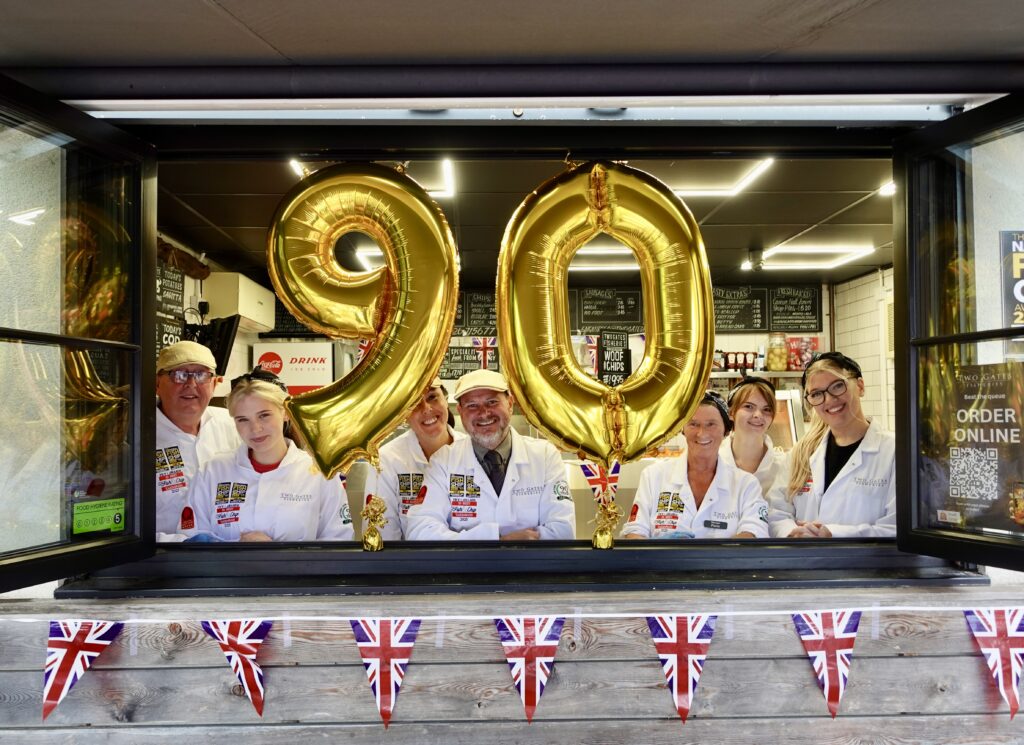A renewed focus on fish, sustainability and education has helped Two Gates Fisheries in Barnsley, South Yorkshire, reach its 90th year in business
Can a fish and chip shop be purely a fish and chip shop? It’s a question we ask a lot, and the answer has shifted with the times.
During Covid, many shops added items such as chicken, milkshakes and coffees to their menus to capitalise on the closure of the high street giants. More recently, surging gas and electricity costs have forced some to strip menus back to basics. And now, with spiralling fish prices, a lot of operators are again widening their menus, trying to balance stretched margins while still feeding the whole family.
But for Craig Butcher, owner of Two Gates Fisheries in Barnsley, the way forward isn’t about diversifying endlessly; it’s about doubling down on fish.
Since taking over the takeaway in 2017, Craig has made a conscious effort to promote fish, stripping away distractions such as deep fried burgers and black pudding. He admits that if he had his way he’d offer fish, chips and peas only, but he understands that’s a step too far, so extends to a quality local pie, sausages, and chicken nuggets for the kids.
“I think, personally, if you just concentrate on what you do best, that is the best policy,” Craig says. “If you’re doing lots of different things – pizzas, kebabs, burgers – I think your quality will deteriorate. You’re trying to make everything right and, at the end of the day, fish and chips is our national dish. We need to really promote that and make sure we get that message out. Let’s be proud of what we’ve got. It’s a good quality meal.”
Craig still offers customers variety, but by using different species of fish, a move that has paid off. In just eight years, takings have increased sixfold. Today, the majority of customers visit Two Gates for fish, which now makes up the bulk of sales.
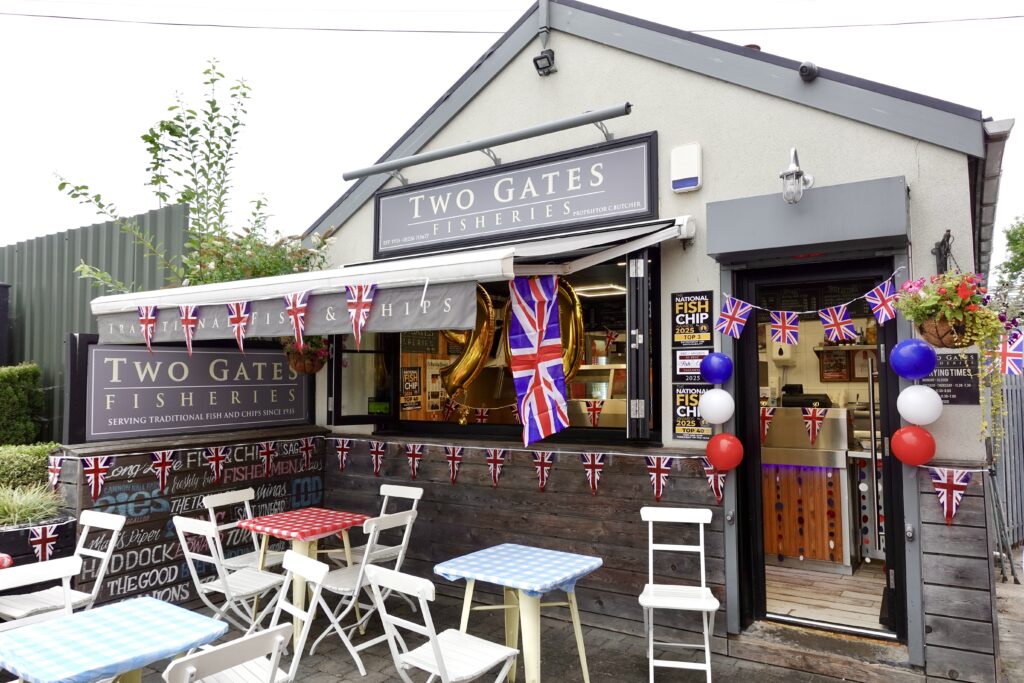
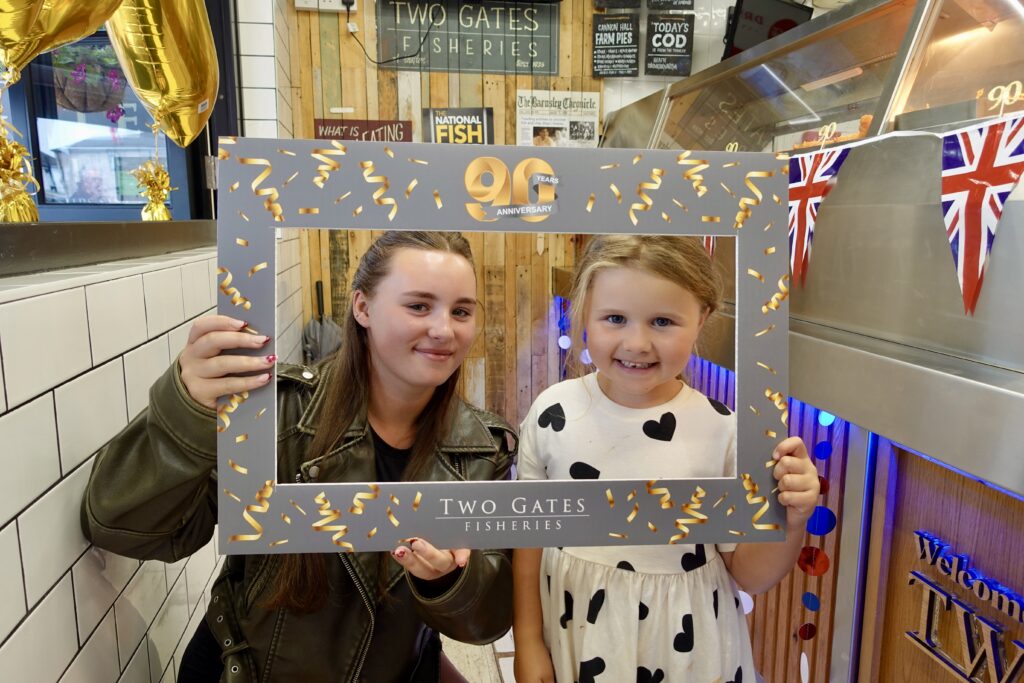
It’s no surprise that cod remains the biggest seller, but Craig has broadened the menu with haddock, plaice and, more unusually, woof. A member of the cod family, woof was once popular in the late 1800s and early 1900s.
“Woof has been received really well,” Craig says. “Mainly, I added it as a talking point because I’m a big believer in having discussions with customers. We’ve got it on a nice blackboard and the number of people who ask about it is phenomenal. Then they try it, and we get repeat customers.
“It’s a lovely chunky fish, cut more like a steak, about an inch and a quarter thick. People love that.”
Delivered fresh every Tuesday and Thursday from Whitby, some assume that woof is a cheap alternative, but Craig insists that isn’t the case. Although it is sold at around 80p less than cod, offering customers value, its real strength lies in being another quality option, caught from British trawlers.
“It’s not that it’s cheap,” Craig stresses. “In fact, the Magpie Café in Whitby serves it too, and we had bikers who used to go there just for woof. They’re over the moon we now stock it.”
Craig’s commitment extends beyond just offering the fish. All staff are encouraged to taste the different species so they can talk confidently to customers. For Craig, that interaction is part of what makes a chippy special.
“Having woof and these different fish on the menu forces the staff to engage with customers and it starts a conversation. It’s something that we are very keen on: that staff are educated on what we sell, why we sell it, and where it’s come from.”
Earlier this month, Two Gates Fisheries marked a major milestone – its 90th anniversary – by offering 90 portions of cod and chips for 90p, followed by 20% off all day.
“It went really well,” Craig says. “We had a queue from about 11 o’clock and we didn’t open until 12. Some people turned up just for their normal lunch, not even realising, so we got the biggest smiles off them.”
Craig felt it was important to mark the occasion for two reasons, adding: “First, it’s a fantastic achievement that a purpose-built fish and chip shop is still here 90 years on. I don’t think many of them are left and I wanted our community to recognise that history. And secondly, it’s all doom and gloom at the moment. You read article after article, and there’s nothing positive. I wanted to say, ‘We’ve been here 90 years, we’ll be here another 20, 30, 40, and hopefully 90 more.’ Fish and chips is our national dish. Let’s be proud and a bit more positive.”
The cod used that day was fresh, UK-caught, delivered specially to echo the shop’s origins in 1935, when two brothers first opened the doors. And the 20% discount wasn’t just generosity, it was also an educational exercise.
“It was to highlight how much VAT adds to the price of fish and chips and we had a really good discussion on that with our customers,” Craig explains. “Many were shocked and said ‘wow, I didn’t realise the government took that much.’ It was good to show we’re not overcharging, we’re not ripping anyone off. If anything, it’s government costs that push prices up. It was a good topic of conversation.”
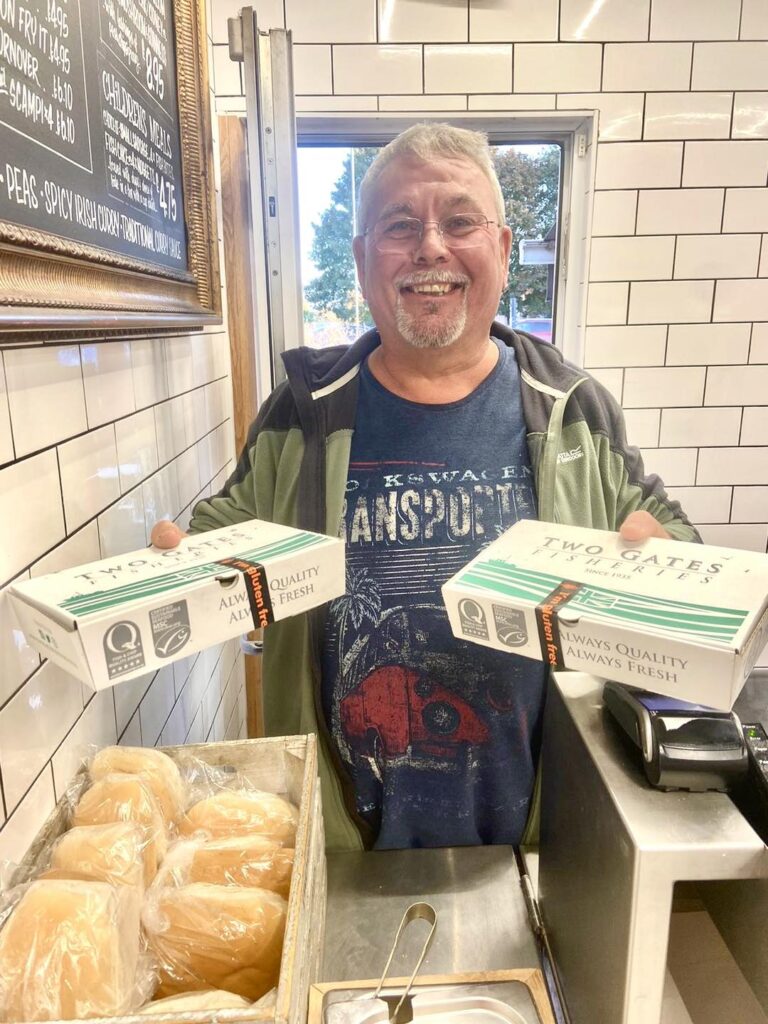
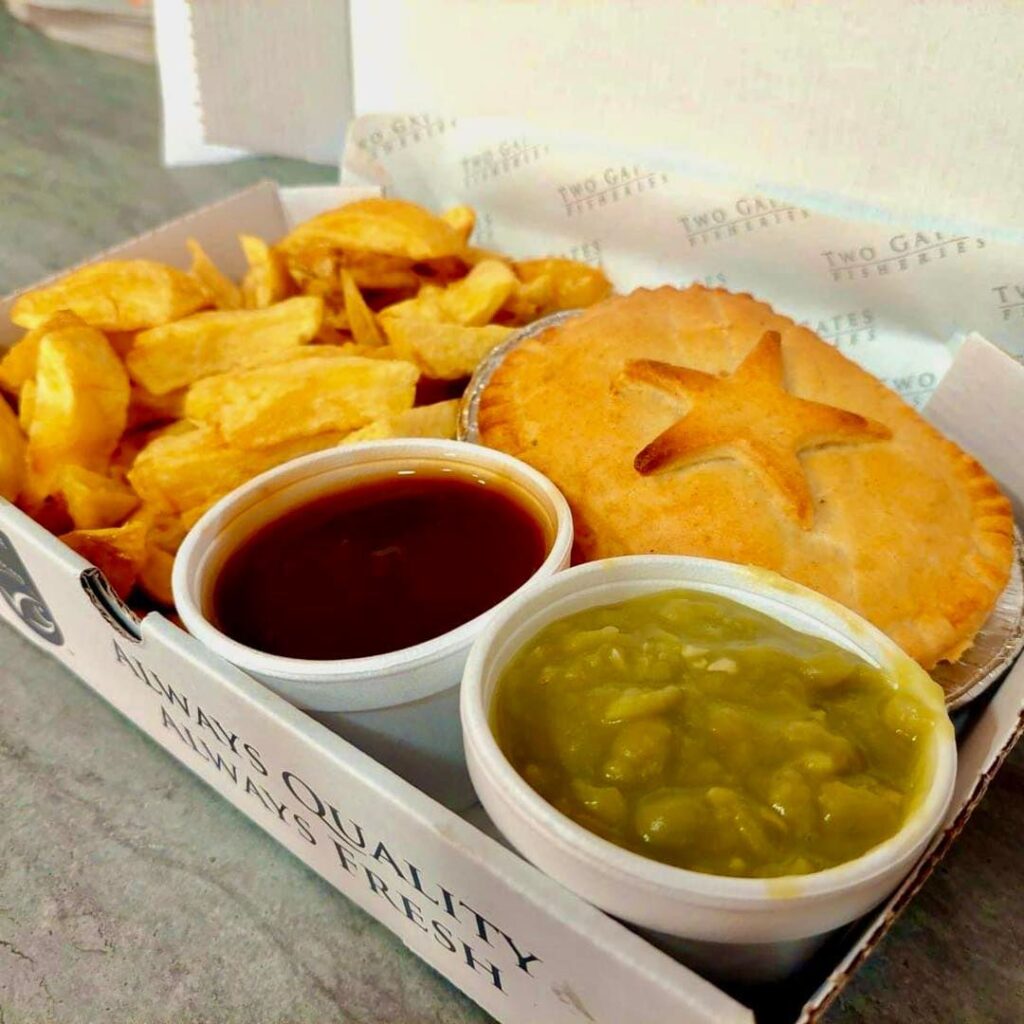
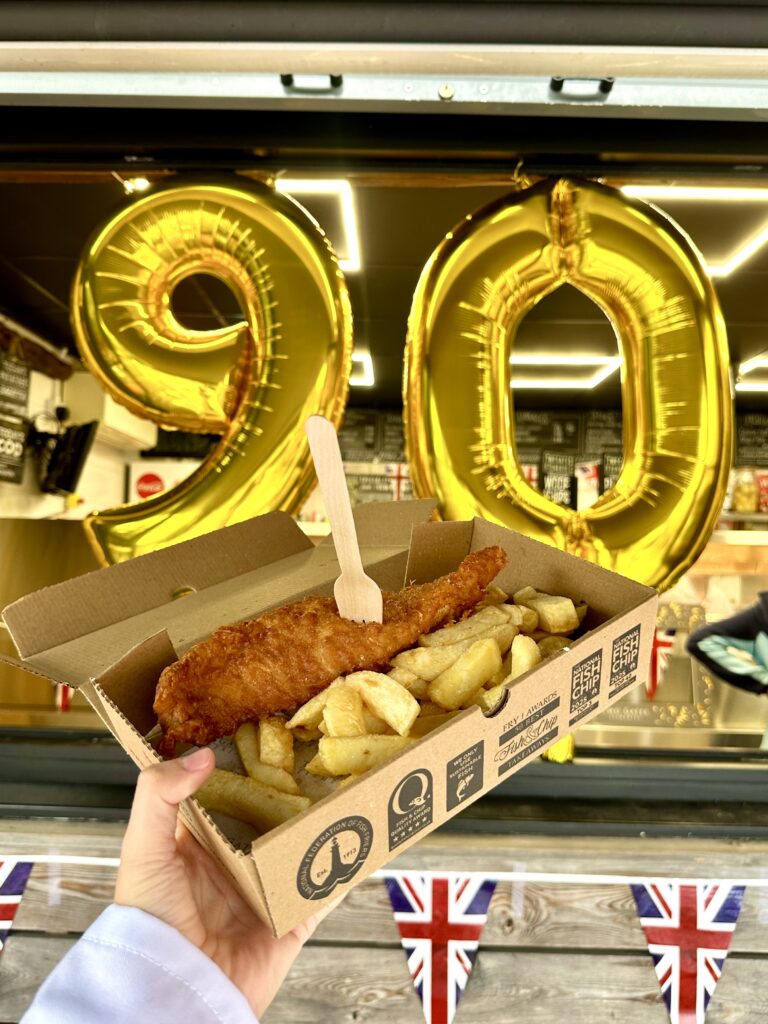
Craig has worked hard to keep his regular portion of fish and chips under £10, helped by a deal he has with a Yorkshire farmer who is supplying potatoes at around £5.50 a sack.
“Nobody wants to be greedy, but nobody wants to work for nothing. That’s the balance. For now, because I’m buying direct, I can keep that price. If potatoes go up, we’ll have to review it, but at the moment, people recognise our prices as fair.”
While the prices might not have changed in recent months. portions sizes have. The traditional six to seven ounce fillet remains a staple, but Craig has introduced smaller ‘light bite’ meals which include a three to five ounce fish with chips and peas for £7.95. They’ve proved especially popular as customers tighten their belts.
Craig’s menu is a careful balance of frozen-at-sea Icelandic cod and fresh fish delivered weekly, which gives Craig choice while managing costs.
He has also invested in a dedicated gluten free pan, ensuring coeliacs and gluten sensitive diners can enjoy fish and chips without worry.
“It can be a pain on busy Fridays,” Craig admits, “but it’s worth it to hear that a whole family can sit down together and Auntie Doris can finally have a meal with them.”
Craig is a natural communicator and since taking over the chippy, he has utilised social media not for stunts or gimmicks, but to educate customers. From where his potatoes come from to why fish is such a nutritious meal, it’s all featured on Craig’s social media.
“A piece of cod is on a natural diet in the sea,” he explains. “It’s not farmed, so you’re getting minerals and everything your body needs – and for a tenner. I think that’s great value. Young people aren’t learning this in school anymore, so I see it as part of my job.”
Craig has also led the shop on a detailed sustainability journey, not just for the environment, but to future-proof the business.
Working with Barnsley council, he audited his carbon footprint and made changes ranging from cutting packaging deliveries from once a month to once a year, to switching suppliers who deliver in electric vans charged at the shop’s own solar panels.
Craig also invested in a high efficiency frying range, slashing his monthly gas bill from £650 to £230, and installed battery packs to store cheaper off-peak electricity. Staff are encouraged to walk to work, and ferns planted around the shop help recycle carbon. “It’s the simplest of simple things that people don’t look at,” says Craig. “We put the frying range on eco as much as we can now and because the heat retention is that good inside these energy efficient ranges, it takes literally seconds to get the pans back up to temperature, but it saves us that much money.”
As a result, the takeaway has gone virtually net zero, which is unheard of for a small fish and chip shop, says Craig. “It’s not just about the environment, for me, it’s about giving the business a future, for me or whoever takes it on next,” he says. “Two Gates has been here for 90 years, and I’d like to think it could be here for another 90.”

